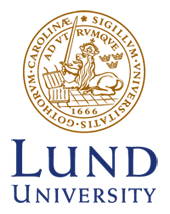-
Th 27th Conference of the Nordic Sociological Association, is organized and hosted by the Department of Sociology at Lund University, Sweden.
Registration
Abstract submission is closed. Registration is open.INFORMATION
Vi på LEGE är offentligt biträde för föräldrar vars barn har omhändertagits. Vi är även offentligt biträde/ställföreträdare för barn.
- TimecenterLocal organizing committee
Christofer Edling (Chair)
Lisa Eklund
Sara Eldén
Carl-Göran Heidegren
Bo Isenberg
Magnus Karlsson
Åsa Lundqvist
Chris Matthieu
Gunnar Andersson (CFO)
Plenaries
1. The Future of Social Solidarity: Europe at a cross-roadThe deep and protracted crisis of Europe’s economies has – together with the human catastrophes in Europe’s vicinity – challenged deep-seated notions of social solidarity and inclusion in European welfare states. A radical contender of the notion of social solidarity has surfaced: the xenophobic and exclusionary strategy pinpointing ‘true citizens’ and ‘free riders’. The plenary considers the future alternatives for European welfare states: a continued development along the exclusionary line or a re-engineered model of social solidarity which fits new family models, migration forms and employment patterns.
Panelists:
Peter Abrahamson, University of Copenhagen (confirmed)
Mary Daly, University of Oxford (confirmed)
Kajsa Ekis Ekman, Author (confirmed)
Göran Therborn, Cambridge University/Linnéuniversitetet (confirmed)
Organizer and chair:
Åsa Lundqvist
2. The Precariat
Capitalism more than ever emerges as ”religion”: it is ubiqitous and it saturates all spheres of life – culture, institutions, relations, self-identity. Correspondingly, society is swiftly and fundamentally altered. ”The specter of uselessness” may haunt anybody, anytime, anywhere, precarization is global. The precariat: the new, swelling, differentiated class populated by the lower or ”outer” classes, by the unsecured middle class, by the internship and post-crash generation. What are the individual and the social consequences of precarization? What will happen to democratic participation? To generational agreement? To professional and social commitment? To responsiblity and conduct of life when means are insufficient?
Panelists:
Kirsti Lempiäinen, University of Lapland (confirmed)
Guy Standing, SOAS, University of London (confirmed)
Kristian Lundberg, Author (confirmed)
Thomas Steinfeld, Süddeutsche Zeitung (confirmed)
Organizer and chair:
Bo Isenberg
3. High-speed Society
To what extent and in which sense is late modern society to be characterized as a high-speed society? What are the relative strengths of accelerating and decelerating forces? What are the prospects for the future of such a society? Are there certain speed limits whose transgression will endanger the continued existence of society? What are the personal consequences of living in a high-speed society?
Panelists:
John Urry, Lancaster University (confirmed)
Karin Widerberg, Oslo University (confirmed)
Per Svensson, Sydsvenskan (confirmed)
Organizer and chair:
Carl-Göran Heidegren
4. Asian Encounters: Exposing or creating blind spots?
This panel will discuss questions such as: What are the merits of studying Asia, as well as encounters between Asia and Europe? What can we learn from Asia and what can Asia learn from us? Can the study of Asia reveal insights about our own societies and vice versa? Or do we by applying “Western” theory in the study of Asian societies create blind spots and thereby fail to understand social change in those societies? What are the methodological difficulties that may arise and can they be overcome?
It is hoped that this panel will spur interest in the study of Asia and identify potential areas of research and topics for research collaboration.
Panelists:
Hilda Roemer Christensen, Copenhagen University (confirmed)
Göran Djurfeldt, Lund University (confirmed)
Geir Helgesen, Nordic Institute of Asian Studies (confirmed)
Cecila Milwertz, Nordic Institute of Asian Studies (confirmed)
Organizer and chair:
Lisa Eklund
5. Nordic Noir
tba
Panelists:
tba
Organizer and chair:
Christopher Mathieu


